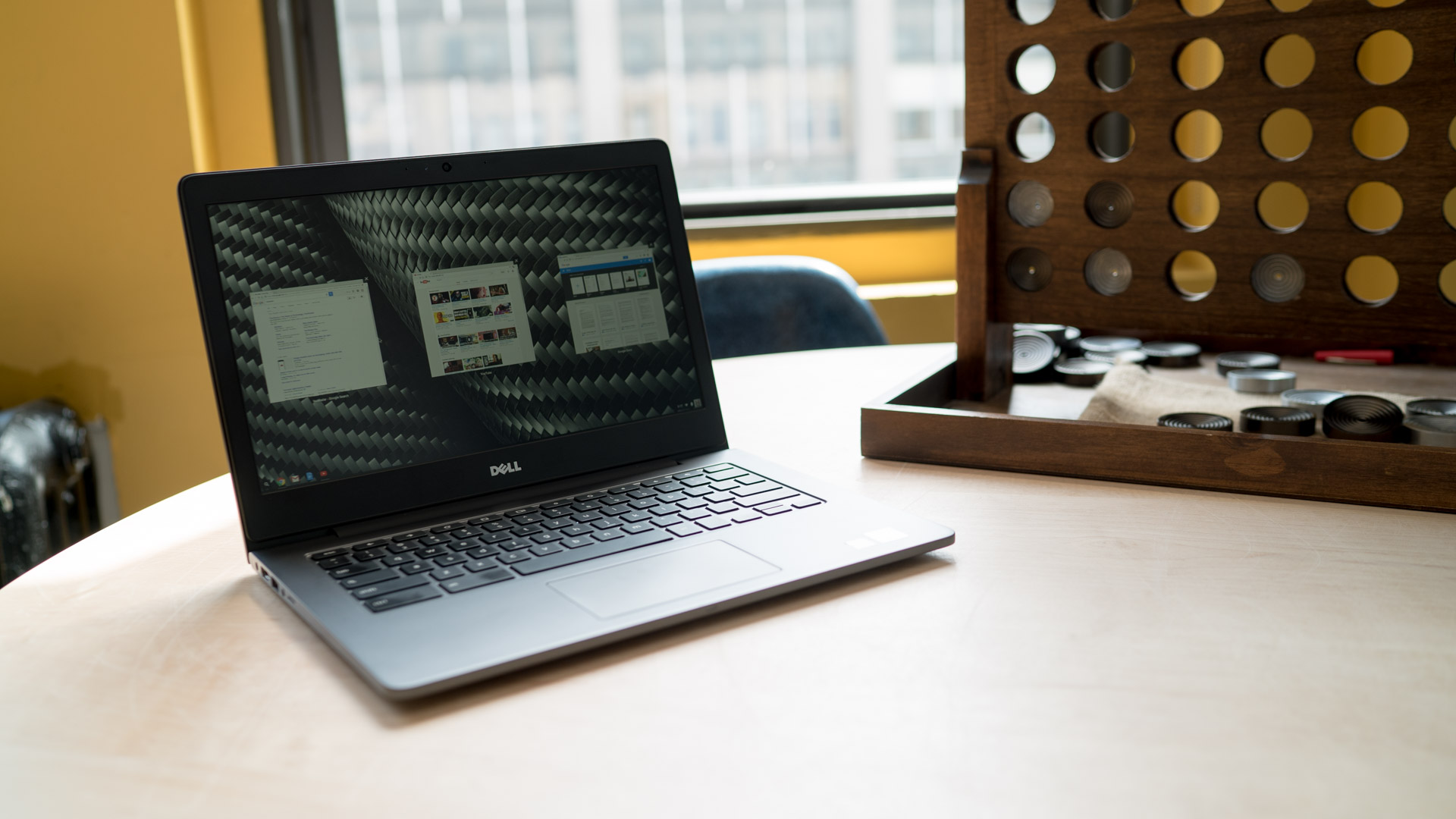Why you can trust TechRadar
With a Celeron processor, 4GB of memory and a 16GB SSD, the base Dell Chromebook 13's hardware isn't all-too-different from most Chromebooks on the market. Still, it offers solid performance and handles most business and everyday tasks brilliantly.
Spec Sheet
Here is the Dell Chromebook 13 configuration sent to techradar for review:
- CPU: 1.7Ghz Intel Celeron 3215U (dual-core, 2MB cache)
- Graphics: Intel HD Graphics GT1
- RAM: 4GB DDR3L
- Screen: 13.3-inch 1920 x 1080 Matte FHD LCD
- Storage: 16GB M2.NGFF Solid State Drive, MicroSD slot
- Optical drive: N/A
- Ports: 1x USB 3.0, 1x USB 2.0, HDMI, headphone and microphone combo jack
- Connectivity: Intel Dual Band Wireless-AC 7260 802.11AC, Bluetooth 4.0
- Camera: Built-in 720p HD video camera
- Weight: 3.23 pounds
- Size: 12.93 x 9.03 x 0.84 inches (W x D x H)

The Dell Chromebook 13 comes in four different varieties, with one that includes a touch screen display, but no 2-in-1 functionality. The most expensive configuration has a 2.9GHz Intel Core i5 processor with 8GB of memory and a 32GB SSD. The high-end model goes for about $927 but does not include a touch screen. That might sound pretty pricey for a Chromebook, even a high-end one, but it's still under the $999 starting price of a Chromebook Pixel.
All models sport 1,920 x 1,080 FHD displays, which may sound disappointing when compared to how the HP Chromebook 13 can support a QHD+ 3,200 x 1,800 screen while the Chromebook Pixel has a 12.8-inch 2,560 x 1,700 IPS touch display. However, considering how small text looks on an FHD display, higher resolutions would almost certainly be overkill.
If you're looking for a Chromebook that scores high in almost every area of design, then the HP Chromebook 13 is looking to be the clear winner. The competitor is lighter, slimmer, and supports a higher resolution screen. HP starts with a $499 Pentium model, and stepping up to the Intel Core m3 model will cost $599.
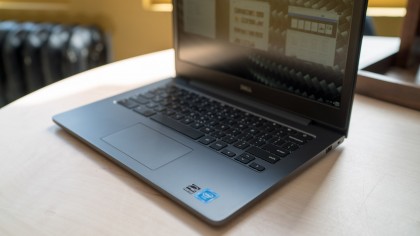
The mid-range HP Chromebook is better priced than the base model Dell I tested, even though it features a faster processor and double (32GB) the storage capacity. Without taking discounts and sales into consideration, it seems clear that the HP Chromebook 13 offers a significantly higher value than the Dell.
Despite the slick look, it's still a Chromebook, meaning that most of the heavy lifting is done in the cloud. The fact that I was able to get a lot of practical use out of the base model demonstrates how you don't need a lot of extra power to be productive.
Extra storage would certainly come in handy for installing a multitude of apps and storing files locally, which helps reduce Chrome OS's reliance on a constant Internet connection, but there's no reason to when the microSD slot adds relatively low-cost storage for large offline files. Those that need the extra space can still do so without breaking past the $1,000 mark.
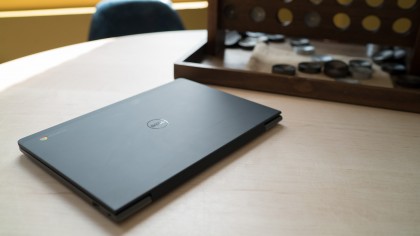
Performance
The Dell Chromebook 13 is designed with business use in mind, but it's balanced enough to for both work and entertainment. I spent much of the time using it to look up information, check email, read documents, browse Amazon, listen to Google Music and watch streaming video from YouTube and Netflix.
As stated earlier, web pages and images loaded quickly, even when bringing up a wall of animated gifs on giphy, although I had to adjust the Chrome browser's settings to read text comfortably.
The Chromebook's physical weight becomes more noticeable over time, especially when continually picking it up to quickly check something and putting it away again – like when looking up characters while watching Game of Thrones.
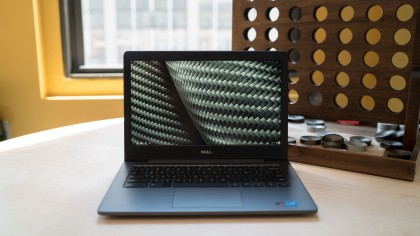
Benchmarks
Here's how the Dell Chromebook 13 performed in our suite of benchmark tests:
- Octane: 13,795
- Mozilla Kraken: 2,139.6ms
- Battery Life (techradar movie test): 14 hours and 30 minutes
The Dell Chromebook 13's Celeron processor offers some impressive performance. The system scored well in both the Octane and Mozilla Kraken JavaScript benchmarks.
Dell certainly delivers on its promise of strong performance for low cost, which can only get better with the higher-end models. The only question is, given the scores of the base model, is that faster hardware really necessary?
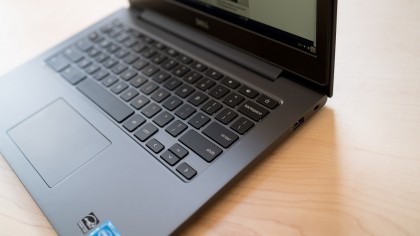
A Marathon Runner
The battery is rated for 12 hours, and it means it. In fact, our movie test ran for 12 and a half hours at 50% brightness, and the battery still had 19% left in it, which Chrome OS estimates to be a little over 2 hours of usage. Running the movie test with the brightness at maximum brightness for 10 hours left about 16% in the battery.
Given what the Chromebook was designed for, it isn't difficult to imagine that this particular model would only need to be charged once or twice a week with average use.
Current page: Specifications, performance and features
Prev Page Introduction and design Next Page Verdict